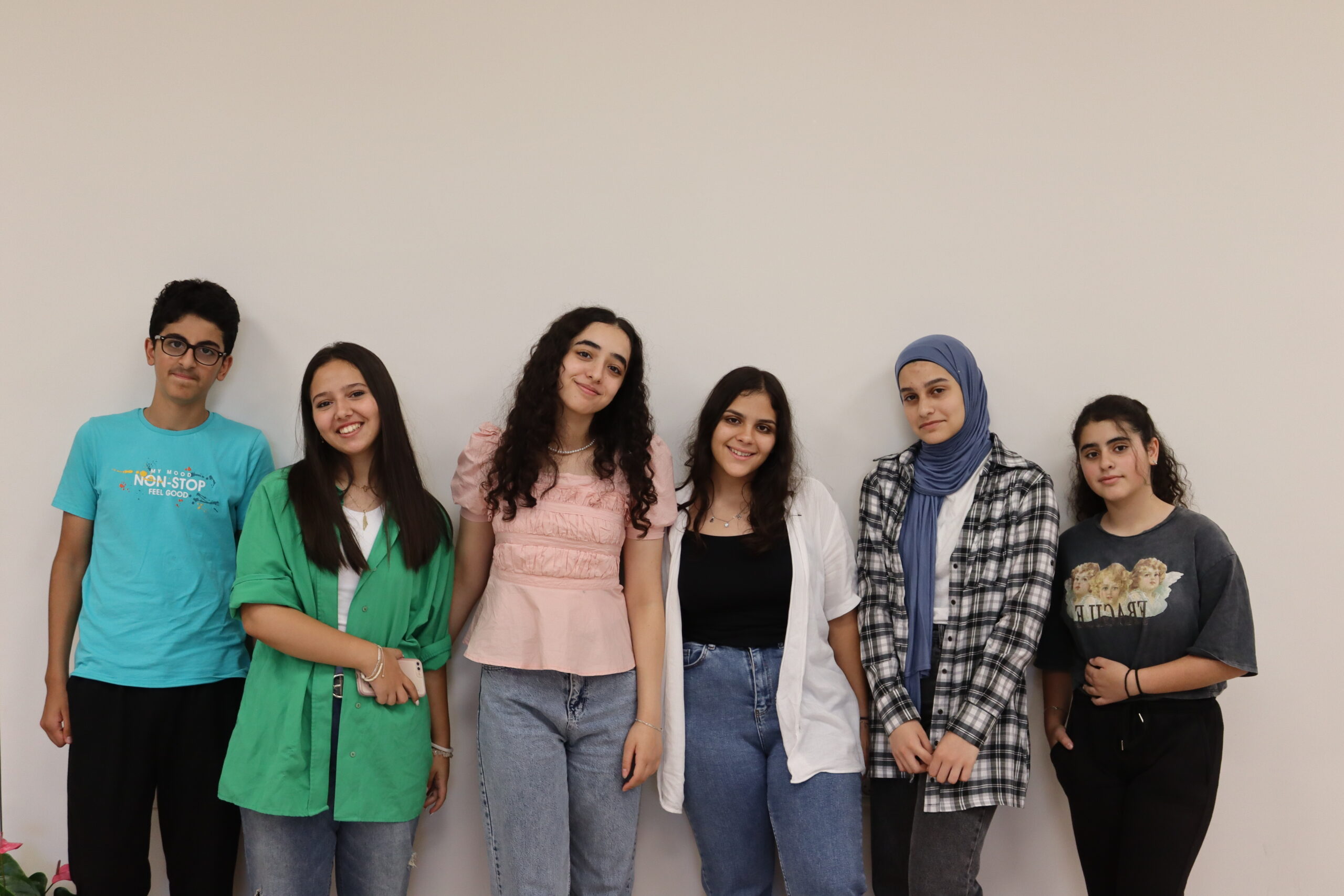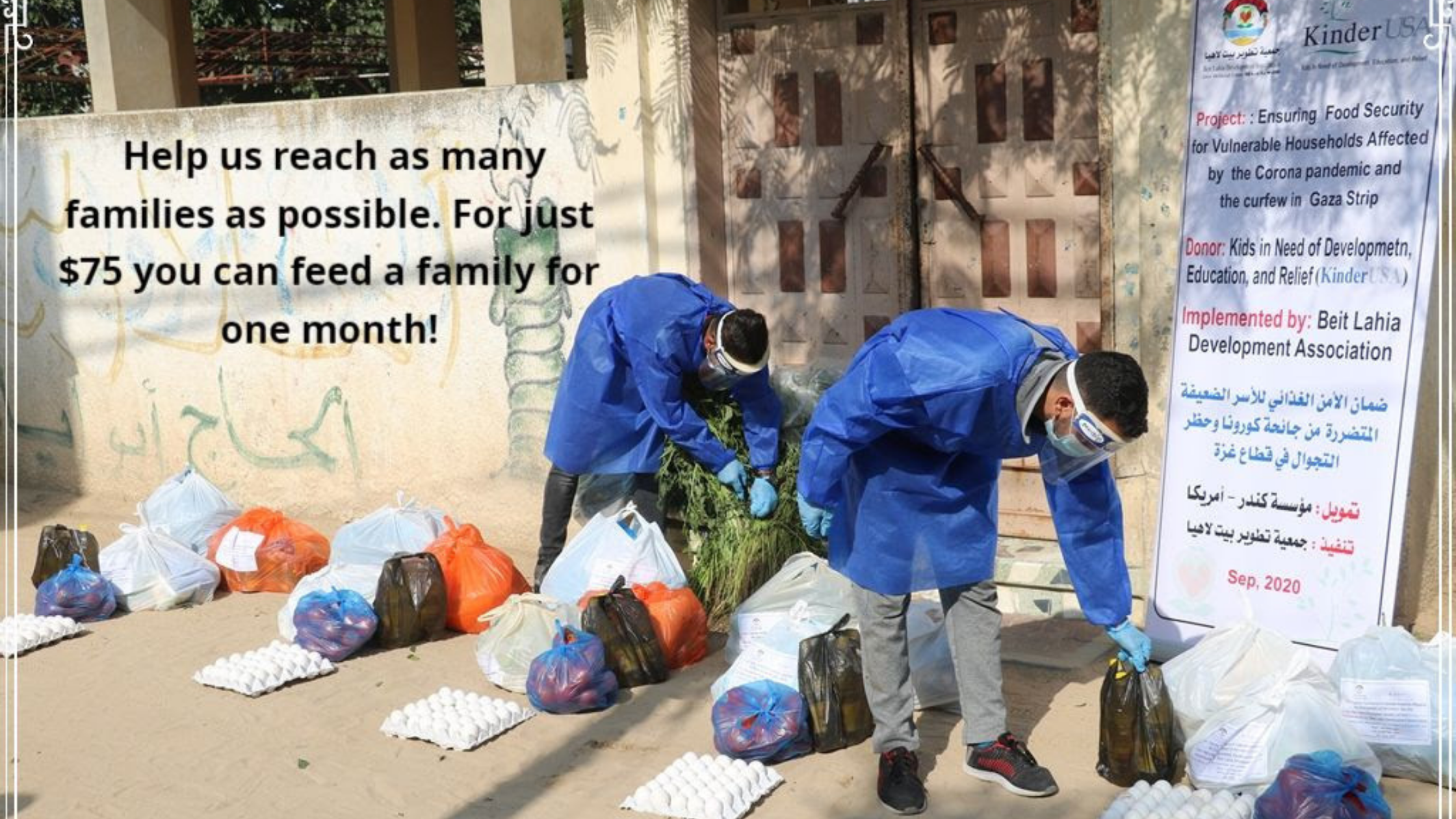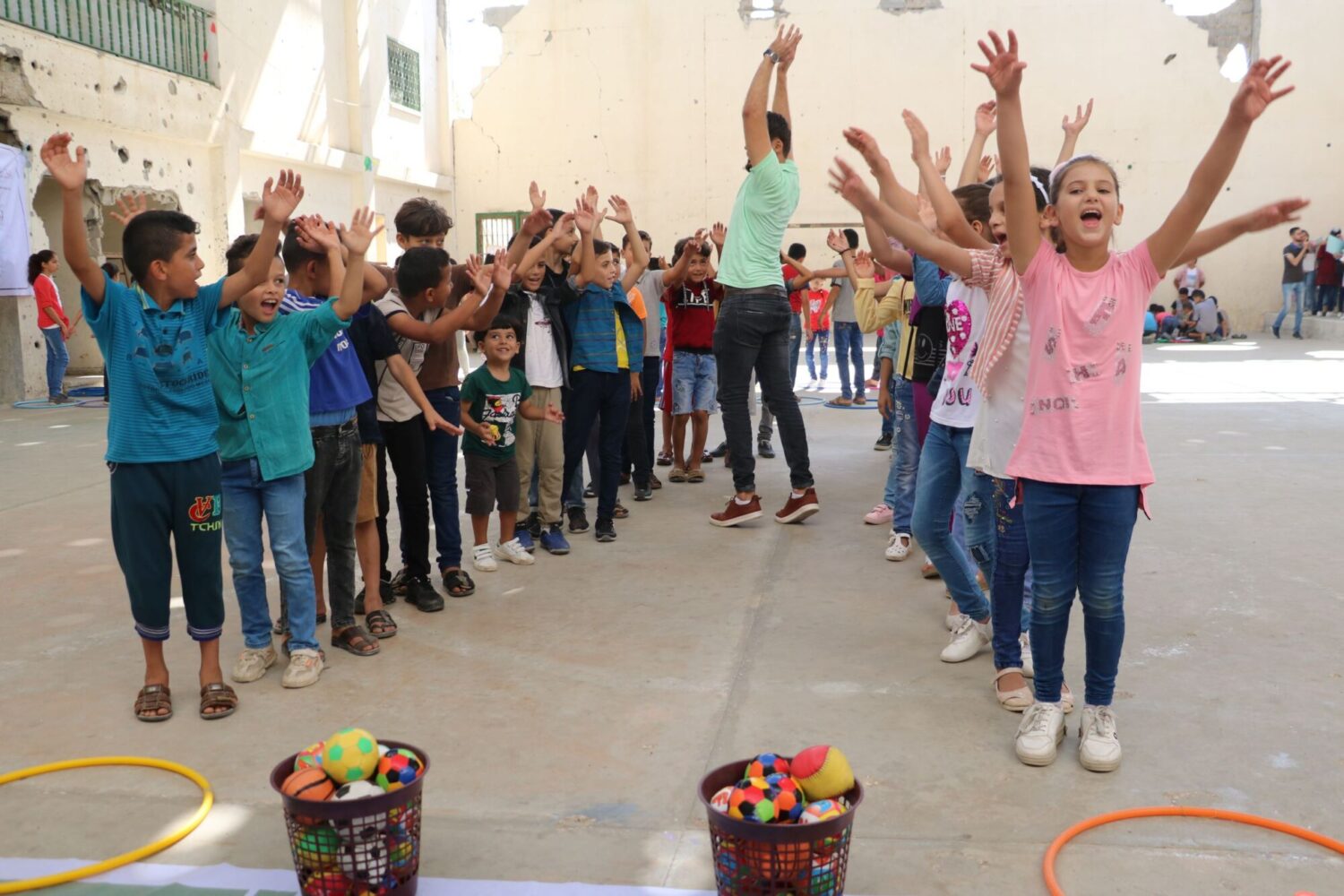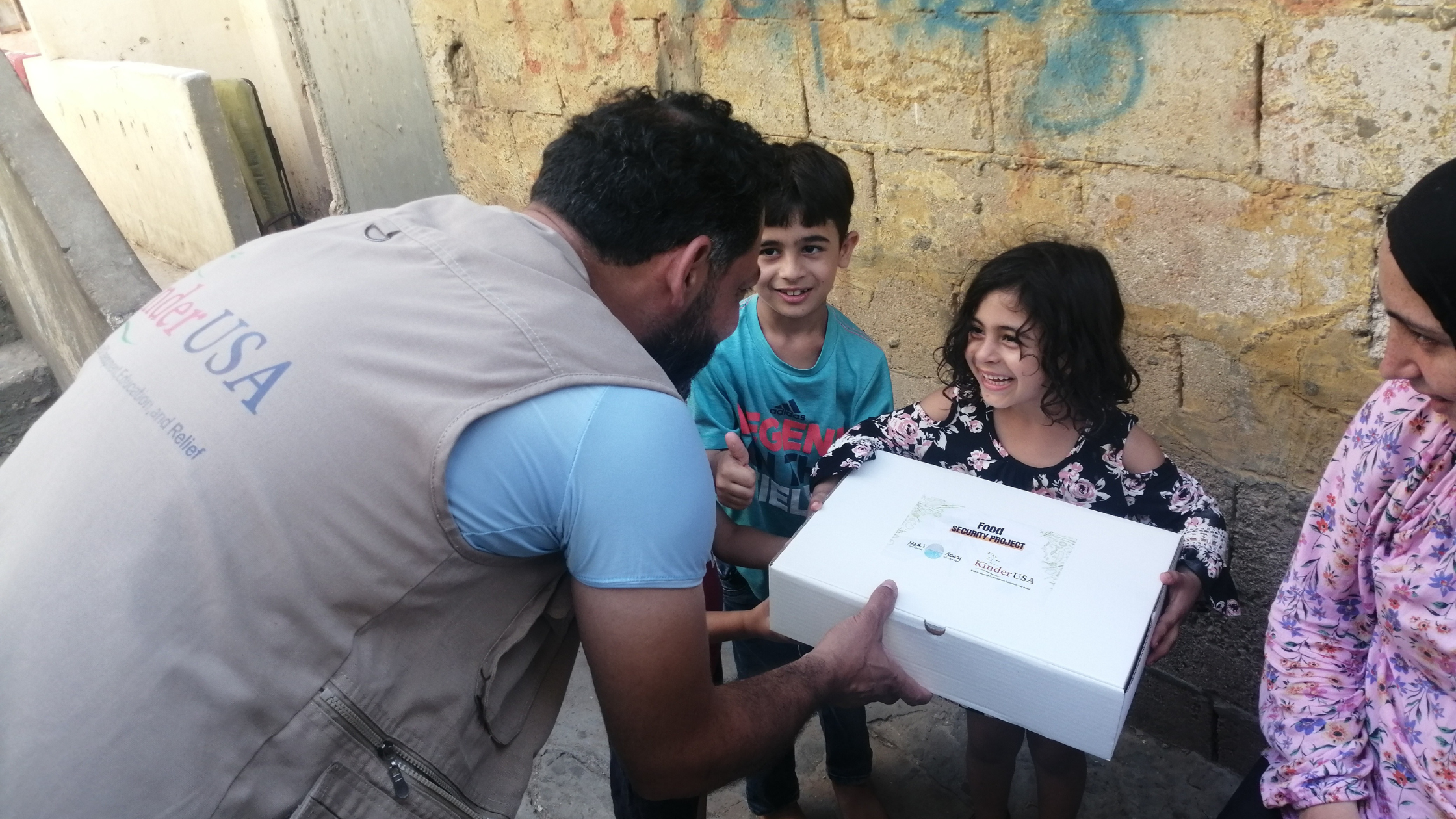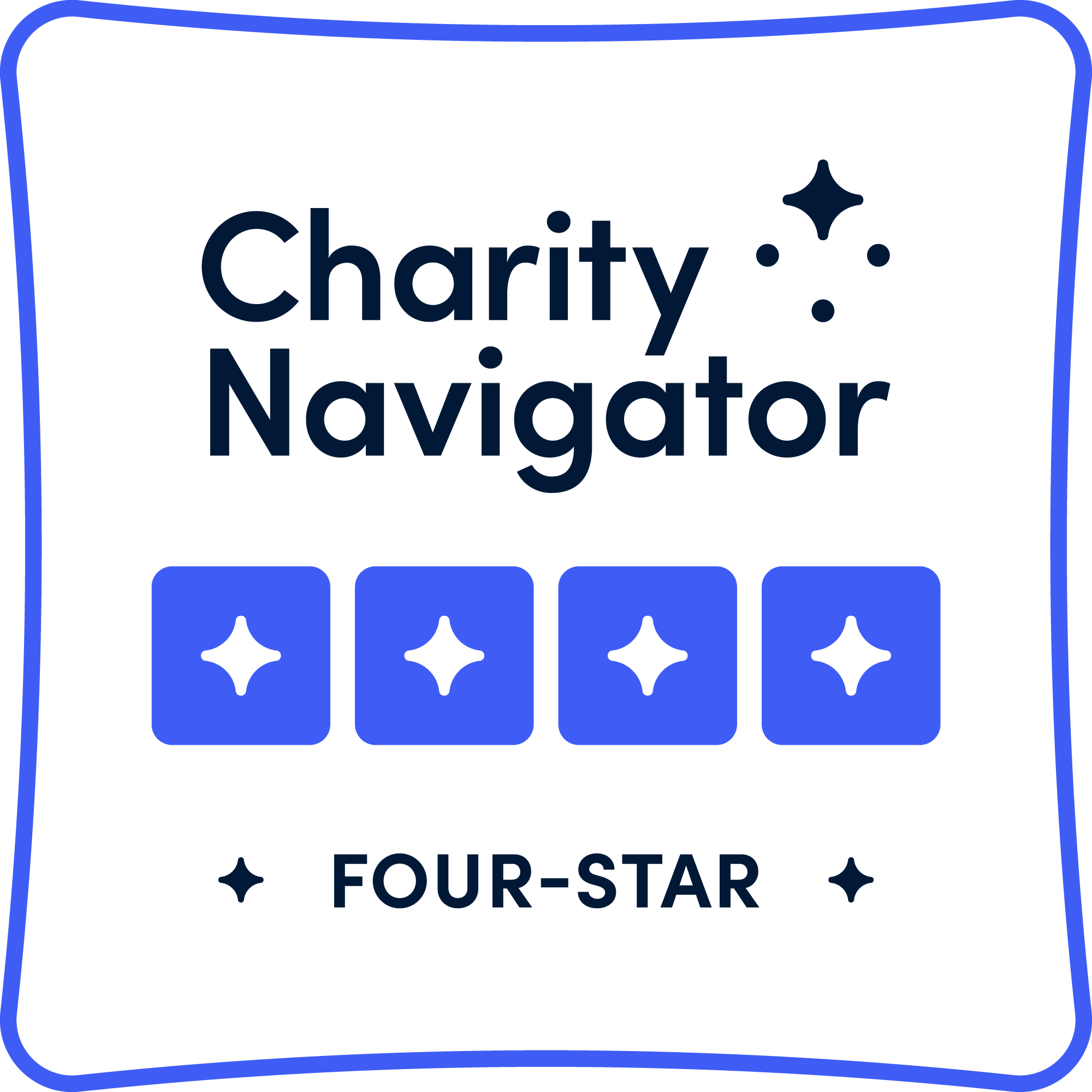The situation in the Gaza Strip has never been worse than it is nowadays. The global COVID-19 pandemic has only highlighted the already terrible conditions the Strip was going through. People in Gaza are currently living in a double quarantine. The first quarantine is due to the COVID-19 pandemic and the other one is due to the blockade which has been the Strip’s harsh reality for the past 14 years.
Gazans find themselves trapped in increasingly unlivable conditions. This quarantine has led to more food insecurity, unemployment, and poverty rates. There are more than 1800 families, which is increasing daily, that are quarantined with no access to basic needs such as food and medications. These families consist of children, people with disabilities, and elders. The government is not able to supply these families with their daily needs. KinderUSA has been working on supporting more than 600 of these families over the last few months but it is still just a drop in the bucket of need.
The situation did not only worsen economically but also psychologically, especially for children. For the many children living in camps, school is considered an outlet for their energy and is also a release from the pressure they feel due to the blockade and ongoing conflict. Schools are now closed as a preventative measure to avoid spreading the virus. This closure has resulted in a great number of children receiving no education for the past months. Home learning systems are not an option because of the lack of proper internet and electricity. It is expected that children will be in need of more psychological support after the pandemic since they are not communicating with their peers and locked in their houses.
Today we have 30 neighborhoods out of 90 in the Gaza Strip, considered as red zone areas where movement is restricted due to the spread of the virus there. These 30 areas are known to have at least half of the population in the Gaza Strip. The closure of these areas forced many people out of their jobs, leaving them unable to afford their basic needs and scrambling just to feed their families. People in Gaza have reported that they would prefer to die due to COVID-19 instead of hunger. After allowing companies, high schools, and markets outside of the red zones to reopen for only 11 hours within the past month, all premises are expected to close fully again due to the increasing number of COVID-19 cases and deaths.
The increasing number of COVID-19 cases is also overwhelming hospitals as they are unable to provide medical assistance to such huge numbers of people. Today, more than 20% of the daily tests are positive, which means that the number of cases is increasing rapidly. Yet, hospitals lack testing kits meaning people are not able to get tested, further increasing the danger of spreading the virus. Hospitals also have a shortage of almost 47% of medications to assist COVID-19 patients. The people needing intensive care include the young, elderly, and those with chronic diseases. A huge problem is there are only two hospitals dealing with COVID-19 cases with a total of 50 beds in the intensive care unit.
The Gaza Strip has been never in so much need of humanitarian aid and your help. The levels of poverty, food insecurity, psychological problems, unemployment, and more are becoming the Strip’s reality. We want to thank our on-the-ground coordinator, Hana, for her tireless work in getting important resources and hope to our people. We appreciate you.
KinderUSA continues to provide emergency food relief baskets to families that include dried legumes, canned meats, eggs, and milk. This virus knows no borders and is leaving a devastating cost most particularly on human life and the lives of our children. It is our shared responsibility and now more than ever, we need to support each other. We are appealing to all our donors to please contribute so we can reach more families. For $75 you can feed a family for one month. That is just $2.50 a day. Please make a donation today to help us expand our reach. Thank you.
